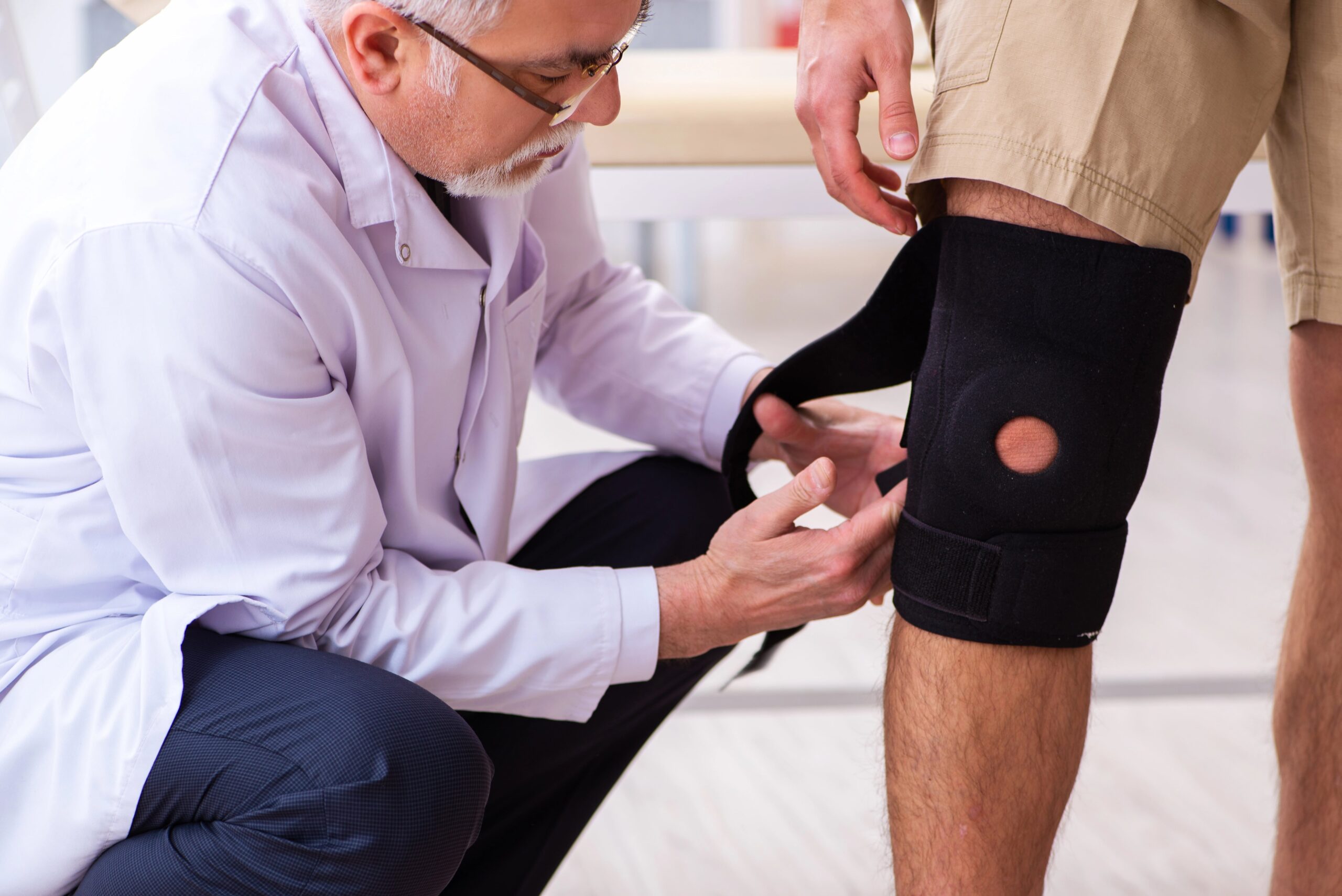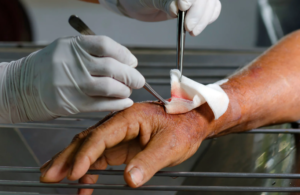Understanding Total Knee Replacement
A total knee replacement is a surgical procedure designed to relieve pain and restore function in severely damaged knee joints. Typically performed when conservative treatments such as medication, physical therapy, or injections no longer provide relief, this procedure involves removing damaged cartilage and bone and replacing it with artificial components. Common conditions leading to knee replacement include osteoarthritis, rheumatoid arthritis, post-traumatic arthritis, and other degenerative joint diseases. The surgery is intended to improve mobility, reduce pain, and enhance overall quality of life. Patients can expect improvements in daily activities such as walking, climbing stairs, and performing household tasks. Modern advancements in orthopedic surgery have significantly improved outcomes, making the procedure safer and more effective than ever. Understanding the procedure, its benefits, and potential risks is essential for anyone considering total knee replacement abroad.
Why Consider Having Total Knee Replacement Abroad
Choosing to undergo total knee replacement abroad can offer numerous advantages, especially for patients seeking cost-effective solutions without compromising quality. One of the most compelling reasons is the potential cost savings, as surgical procedures in countries with lower medical costs can be significantly cheaper than domestic alternatives. Additionally, many international hospitals offer state-of-the-art facilities, advanced surgical technology, and experienced orthopedic surgeons who specialize in joint replacement procedures. Patients often benefit from shorter waiting periods and more flexible scheduling, which can accelerate access to treatment. For those seeking a combined travel experience, medical tourism offers an opportunity to recover in a new and comfortable environment. Moreover, many hospitals abroad provide comprehensive care packages that include transportation, accommodation, and post-surgery rehabilitation services. Patients can weigh these advantages alongside any potential challenges to make an informed decision about surgery abroad.
Popular Destinations for Knee Replacement Surgery
Several countries have become renowned for medical tourism in orthopedic surgery, particularly total knee replacement. India, Thailand, Turkey, Mexico, and Malaysia are frequently chosen for their high-quality hospitals and internationally accredited surgeons. Many of these countries adhere to global medical standards, ensuring patient safety and surgical success. Hospitals often have JCI (Joint Commission International) or ISO accreditation, which demonstrates compliance with international healthcare benchmarks. Choosing the right destination involves evaluating hospital infrastructure, surgeon expertise, and patient reviews. Language accessibility and availability of comprehensive support services are also important considerations. With careful planning, patients can access world-class medical care while enjoying the added benefits of international travel and recovery in a supportive environment.
Planning Your Surgery Abroad
Proper planning is essential for a successful total knee replacement abroad. Start by researching hospitals and surgeons with proven expertise in knee replacement procedures. Many international hospitals offer virtual consultations to discuss medical history, surgical options, and expected outcomes. Patients should gather all necessary medical records, imaging results, and prior treatment information before travel. Understanding the procedure, potential risks, and rehabilitation process is vital for informed decision-making. Communication with your healthcare provider about anesthesia, post-operative care, and follow-up appointments will help ensure a smooth surgical experience. Patients should also prepare for cultural differences, local healthcare protocols, and logistical considerations such as transportation and accommodation. Comprehensive planning minimizes risks and ensures a more comfortable and confident medical journey.
Costs and Financing Options
The financial aspect of total knee replacement abroad is often a key factor in decision-making. Costs vary depending on the country, hospital, surgeon, and the complexity of the procedure. On average, total knee replacement abroad can cost between 40% to 70% less than in the United States or Western Europe. Comprehensive packages typically include the surgery itself, hospital stay, medications, post-operative rehabilitation, and sometimes accommodation. Patients should carefully review what is included to avoid unexpected expenses. Insurance coverage may vary, and some plans may not cover procedures performed internationally. Financing options and medical tourism packages offered by hospitals can provide additional support, making treatment more accessible. Understanding all financial details beforehand helps patients budget effectively and avoid stress during recovery.
Travel and Logistics Considerations
Traveling abroad for total knee replacement requires careful planning to ensure safety and convenience. Pre-surgery requirements often include medical evaluations, blood tests, and imaging studies, which may need to be completed in advance. Visa requirements, travel arrangements, and accommodations should be organized early to reduce logistical challenges. Patients should plan for adequate recovery time both in the hospital and during travel back home, as mobility may be limited in the first few weeks. Arranging assistance for airport transfers, local transportation, and personal care can enhance safety and comfort. Patients may also need to carry important documents such as prescriptions, medical records, and emergency contacts. Attention to travel and logistics reduces stress and allows patients to focus on healing after surgery.
Post-Surgery Recovery and Rehabilitation Abroad
Recovery after total knee replacement requires dedication and support, whether abroad or at home. Physical therapy and guided exercises are critical for regaining strength, flexibility, and mobility. Hospitals abroad often offer rehabilitation services and occupational therapy to accelerate recovery and reduce complications. Patients can expect a hospital stay ranging from two to five days, depending on their overall health and surgical outcomes. Post-operative instructions typically include pain management, wound care, and mobility exercises. Once back home, continuing physical therapy and follow-up appointments is essential for long-term success. Patients should monitor for warning signs such as swelling, redness, or fever, and contact their healthcare provider if any complications arise. With proper care, most patients experience significant improvement in pain, mobility, and overall quality of life.
Risks and Safety Concerns
While total knee replacement abroad can offer significant benefits, it is important to be aware of potential risks. Surgical complications can include infection, blood clots, nerve damage, or prosthetic issues. Differences in medical regulations, standards, and infection control protocols can influence patient safety. Patients should research hospital accreditation, surgeon qualifications, and patient feedback before making a decision. Choosing a reputable facility with a proven track record helps mitigate risks. Having a support system during recovery, understanding post-operative care, and following medical advice are critical for safety. Patients should also consider travel-related risks such as long flights or delayed access to emergency care. Being informed and proactive ensures a safer and more successful medical experience abroad.
Patient Experiences and Expectations
Patients considering total knee replacement abroad should have realistic expectations about recovery and outcomes. Pain management, mobility improvement, and daily activity resumption may take several weeks or months, depending on individual health. Physical therapy, adherence to medical instructions, and gradual return to normal activities are key for successful rehabilitation. Emotional and psychological preparedness for surgery and travel plays an important role in recovery. Patients may experience anxiety, excitement, or stress related to undergoing surgery in a foreign country. Understanding the process, setting realistic goals, and seeking support from medical professionals, family, or patient networks can improve the overall experience. Clear communication with healthcare providers ensures patients know what to expect and can navigate recovery with confidence.
FAQ
Is total knee replacement abroad safe?
Yes, when performed in accredited hospitals by experienced surgeons, total knee replacement abroad can be safe. Accreditation and certifications like JCI or ISO ensure adherence to international healthcare standards. Patients should carefully research hospitals and providers to ensure safety.
How much can I save by having knee replacement surgery abroad?
Patients often save 40% to 70% compared to domestic costs. Savings depend on the country, hospital, and type of package chosen. Comprehensive packages may include surgery, hospital stay, medications, and post-operative care.
How long do I need to stay in the hospital after surgery?
Hospital stays typically range from two to five days. Length of stay depends on overall health, surgical complexity, and recovery progress. Rehabilitation and physical therapy may continue after discharge.
Will my insurance cover surgery abroad?
Coverage varies by insurance provider and plan. Some insurance policies cover procedures abroad, while others do not. Patients should confirm with their insurance provider before making arrangements.
How do I choose the right hospital and surgeon?
Research hospital accreditation, surgeon experience, patient reviews, and success rates. Virtual consultations and direct communication with the medical team help ensure confidence in your choice. Consider location, language accessibility, and post-operative support services.
What should I pack and prepare for travel and recovery?
Important items include medical records, prescriptions, comfortable clothing, mobility aids, travel insurance, and personal care items. Planning for post-surgery recovery, including assistance with daily activities, is essential for a smooth experience.






